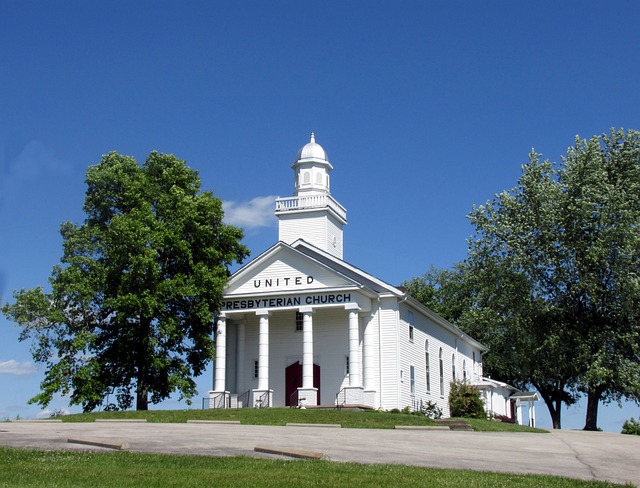Presbyterians are a Protestant Christian denomination that originated in Scotland during the 16th century. With a strong emphasis on the governance of the church by elected elders, Presbyterians have spread across the world and continue to exist as a distinct religious group today.
Table of Contents
The History and Origins of Presbyterianism
Presbyterianism is a Christian denomination that has a rich history and deep roots. It originated in Scotland during the 16th century and has since spread to various parts of the world. But with the changing times and the rise of other religious movements, one might wonder if Presbyterians still exist today. The answer is a resounding yes!
To understand the present, we must first delve into the past. Presbyterianism traces its origins back to the Protestant Reformation, a period of religious upheaval in Europe. In the early 1500s, a Scottish theologian named John Knox became influenced by the teachings of John Calvin, a prominent figure in the Reformation. Knox brought Calvin’s ideas back to Scotland and played a crucial role in establishing Presbyterianism as the dominant form of Protestantism in the country.
The name “Presbyterian” comes from the Greek word “presbyteros,” which means elder. This reflects the unique structure of the Presbyterian Church, where decisions are made by a group of elected elders rather than a single leader. This system of governance, known as Presbyterian polity, ensures that power is shared among the congregation and prevents any one person from having too much authority.
Presbyterianism quickly gained popularity in Scotland and spread to other parts of the British Isles. Scottish immigrants brought their faith with them as they settled in North America, leading to the establishment of Presbyterian churches in the United States and Canada. Today, there are Presbyterian churches in many countries around the world, including South Korea, Ghana, and Australia.
Presbyterians have played a significant role in shaping history. During the American Revolution, many Presbyterian ministers were outspoken advocates for independence and played a crucial role in the formation of the United States. The Presbyterian Church also played a vital role in the abolitionist movement, with many members actively working to end slavery.
Despite its historical significance, Presbyterianism has not been immune to the challenges of modernity. Like many other Christian denominations, Presbyterians have seen a decline in membership in recent years. This can be attributed to various factors, including changing societal attitudes towards religion and the rise of secularism. However, many Presbyterian churches are adapting to these changes by embracing new forms of worship and outreach.
Presbyterians today are a diverse group, encompassing a wide range of theological beliefs and practices. Some churches adhere strictly to traditional Presbyterian doctrine, while others have adopted more liberal interpretations. This diversity is a strength of the denomination, as it allows for a vibrant exchange of ideas and perspectives.
Presbyterians continue to be active in their communities, engaging in social justice issues and providing support to those in need. Many Presbyterian churches have outreach programs that focus on addressing poverty, homelessness, and other pressing social issues. This commitment to social justice is rooted in the belief that faith should be lived out in action, not just in words.
In conclusion, Presbyterians are very much alive and well today. While the denomination has faced challenges, it continues to thrive and adapt to the changing times. Presbyterianism’s rich history and commitment to social justice make it a relevant and vibrant part of the Christian faith. So, the next time someone asks if Presbyterians still exist, you can confidently say, “Yes, and they are making a difference in the world!”
Key Beliefs and Practices of Presbyterianism Today

Presbyterianism is a branch of Protestant Christianity that traces its roots back to the 16th century Reformation. With its emphasis on the sovereignty of God and the authority of Scripture, Presbyterianism has had a significant impact on the religious landscape. But in today’s world, do Presbyterians still exist? The answer is a resounding yes.
One of the key beliefs of Presbyterianism is the idea of predestination. This doctrine holds that God has already determined who will be saved and who will not. While this may seem like a controversial belief, it is still held by many Presbyterians today. They believe that God’s grace is freely given to those whom He has chosen, and that salvation is not earned through good works or personal merit.
Another important belief of Presbyterianism is the idea of the priesthood of all believers. This means that every member of the church has a role to play in the ministry and mission of the church. Presbyterians believe that all believers are called to serve God and their fellow human beings, and that each person has unique gifts and talents to contribute to the body of Christ.
Presbyterians also place a strong emphasis on the authority of Scripture. They believe that the Bible is the inspired Word of God and the ultimate authority for faith and practice. This means that Presbyterians look to the Bible as their guide for understanding God’s will and living a life that is pleasing to Him. They believe that the Bible contains everything necessary for salvation and that it should be interpreted in its historical and cultural context.
In terms of worship, Presbyterianism is known for its simplicity and reverence. Presbyterians typically have a structured order of worship that includes prayers, hymns, Scripture readings, and a sermon. They believe that worship should be focused on God and that it should be a time of reverence and awe. While worship styles may vary from one congregation to another, the underlying principles of simplicity and reverence remain the same.
Presbyterians also have a strong commitment to social justice and the care of creation. They believe that God calls them to work for justice and peace in the world and to be good stewards of the earth. Many Presbyterian churches are actively involved in community outreach programs, advocacy for the marginalized, and environmental initiatives. They see these actions as a natural outgrowth of their faith and a way to live out the love and compassion of Christ.
So, while the world may have changed since the days of the Reformation, Presbyterians still exist and continue to hold fast to their key beliefs and practices. They believe in the sovereignty of God, the authority of Scripture, and the priesthood of all believers. They worship with simplicity and reverence, and they are committed to social justice and the care of creation. Presbyterians may be a diverse group, but they are united by their faith and their desire to live out the teachings of Jesus Christ.
Presbyterian Denominations and their Differences
Do Presbyterians still exist? It’s a question that may come to mind when considering the vast array of Christian denominations that exist today. With so many different beliefs and practices, it can be easy to wonder if certain denominations have faded into obscurity. However, when it comes to Presbyterians, the answer is a resounding yes. Presbyterians are still very much a part of the religious landscape, and their influence can be seen in various Presbyterian denominations around the world.
Presbyterianism is a branch of Protestant Christianity that traces its roots back to the 16th century Reformation. The movement was led by John Calvin, a French theologian who sought to reform the Catholic Church. Calvin’s teachings emphasized the sovereignty of God and the authority of Scripture. These ideas resonated with many people, and the Presbyterian movement quickly gained followers.
Today, there are several different Presbyterian denominations, each with its own unique beliefs and practices. One of the largest and most well-known is the Presbyterian Church (USA). This denomination has a long history in the United States and is known for its commitment to social justice and inclusivity. The PC(USA) has been at the forefront of many important social issues, including civil rights and LGBTQ+ rights.
Another prominent Presbyterian denomination is the Presbyterian Church in America (PCA). The PCA was formed in 1973 as a more conservative alternative to the PC(USA). The PCA holds to a more traditional interpretation of Scripture and places a strong emphasis on evangelism and missions. While the PCA and the PC(USA) share a common heritage, they have diverged in their beliefs and practices over the years.
In addition to these two denominations, there are many other Presbyterian groups around the world. The Presbyterian Church of Korea, for example, is one of the largest Christian denominations in South Korea. The Presbyterian Church of East Africa is a vibrant and growing denomination in Kenya and other parts of East Africa. These are just a few examples of the many Presbyterian denominations that exist today.
Despite their differences, all Presbyterian denominations share some common beliefs and practices. One of the key features of Presbyterianism is its form of church government. Presbyterians are governed by a system of elders, who are elected by the congregation and serve as spiritual leaders. This system is based on the biblical model of leadership found in the New Testament.
Presbyterians also place a strong emphasis on education and the study of Scripture. Many Presbyterian churches have their own seminaries and educational institutions, where future ministers and church leaders are trained. The Presbyterian commitment to education has had a significant impact on the development of higher education in many countries.
So, do Presbyterians still exist? Absolutely. From the Presbyterian Church (USA) to the Presbyterian Church of Korea, Presbyterian denominations continue to thrive around the world. While they may have different beliefs and practices, they all share a common heritage and commitment to the teachings of John Calvin. Whether you’re looking for a church that emphasizes social justice or one that focuses on evangelism, there’s likely a Presbyterian denomination that aligns with your beliefs and values. So, the next time you find yourself wondering if Presbyterians still exist, rest assured that they do, and they’re making a difference in the world today.
The Influence of Presbyterianism on Society and Culture
Presbyterianism, a branch of Protestant Christianity, has a rich history that has greatly influenced society and culture. But do Presbyterians still exist today? The answer is a resounding yes! While their numbers may have declined in recent years, Presbyterians continue to have a significant presence in many parts of the world.
One of the ways in which Presbyterianism has influenced society is through its emphasis on education. Presbyterians have long been advocates for education, believing that an educated society is essential for the well-being of individuals and the community as a whole. This belief has led to the establishment of numerous schools and colleges by Presbyterian churches around the world. These institutions have played a crucial role in shaping the minds of countless individuals and have contributed to the advancement of knowledge in various fields.
Another area where Presbyterianism has made a lasting impact is in the realm of social justice. Presbyterians have a strong tradition of advocating for the rights of the marginalized and oppressed. This commitment to social justice can be traced back to the teachings of John Calvin, one of the key figures in the development of Presbyterian theology. Calvin emphasized the importance of caring for the poor and standing up against injustice, and these values continue to be central to the Presbyterian faith today. Many Presbyterian churches are actively involved in community outreach programs, working to address issues such as poverty, racism, and inequality.
Presbyterians have also had a significant influence on the arts. The Presbyterian Church has a long history of supporting and promoting the arts, recognizing their power to inspire and uplift the human spirit. Many renowned artists, musicians, and writers have been Presbyterians or have been influenced by Presbyterianism. The Presbyterian Church has often been a patron of the arts, providing financial support and a platform for artists to showcase their work. This support has helped to foster a vibrant artistic community within Presbyterian circles and has contributed to the cultural landscape of many societies.
In addition to their contributions to education, social justice, and the arts, Presbyterians have also played a role in shaping political discourse. Presbyterianism has a strong tradition of democratic governance within the church, with decisions being made collectively by elected representatives. This commitment to democratic principles has often extended beyond the church walls, with many Presbyterians actively engaging in political activism and advocating for democratic values in society. Presbyterians have been involved in various social and political movements throughout history, including the civil rights movement, the anti-apartheid movement, and the fight for gender equality.
So, while the numbers of Presbyterians may have declined in recent years, their influence on society and culture remains significant. From their commitment to education and social justice to their support for the arts and their engagement in political discourse, Presbyterians continue to make a positive impact on the world. Whether through their individual actions or through the collective efforts of their churches, Presbyterians are working to create a more just, compassionate, and inclusive society. So, the next time someone asks if Presbyterians still exist, you can confidently say yes and share some of the ways in which they are making a difference in the world.
Conclusion
Yes, Presbyterians still exist today.


